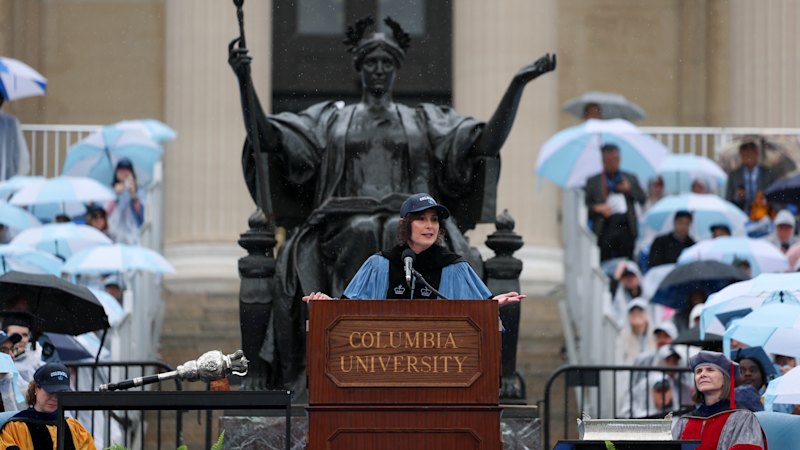
Columbia University has agreed to a significant settlement of $300 million with the Trump administration, aimed at restoring federal funding for its research programs. This agreement addresses multiple civil rights investigations and marks a pivotal moment for the institution, which has faced financial instability and leadership challenges in recent years.
Under the terms of the settlement, Columbia will pay a penalty of approximately $200 million over three years. This payment is designed to resolve ongoing investigations related to civil rights violations, facilitating the reinstatement of over $400 million in previously canceled grants and contracts. In addition, the university will regain access to billions in future federal funding.
The settlement also includes a $21 million payment to address claims of unlawful workplace discrimination against Jewish faculty and staff. A senior White House official characterized this payment as the largest public employment discrimination settlement in nearly two decades, particularly concerning antisemitism or any religious group.
In exchange for these concessions, the federal government will lift the freeze on most of Columbia’s terminated grants and restore the university’s eligibility for future federal awards. The agreement contains stipulations requiring Columbia to enhance transparency and compliance with federal civil rights laws. It is expected to serve as a model for other institutions facing similar scrutiny from the government.
The agreement comes in the wake of heightened federal oversight of higher education across the United States. The Trump administration has been criticized for infringing on academic freedom and free speech. The controversy surrounding Columbia intensified following pro-Palestinian protests at its New York City campus, which were sparked by the war in Gaza that began on October 7, 2023. Legislators have accused the university of fostering an antisemitic environment, prompting federal actions that included the cancellation of over 300 grants and contracts due to complaints from Jewish students.
In a statement, acting Columbia president Claire Shipman expressed hope that the settlement would safeguard the university’s independence and academic excellence. “The settlement was carefully crafted to protect the values that define us and allow our essential research partnership with the federal government to get back on track,” she said.
The turmoil at Columbia has led to significant leadership changes, including the departures of former president Minouche Shafik and interim leader Katrina Armstrong, who resigned amid controversy over campus reforms. Armstrong had agreed to measures that included increased policing and oversight of student protests.
Under the new agreement, Columbia will implement several reforms. These include sharing detailed information with federal agencies regarding hiring and admissions decisions, restructuring its oversight of student protests, and tightening rules against disruptive demonstrations. Additionally, oversight of international students will be enhanced, with measures to assess applicants’ motivations for studying in the United States and reduce financial dependence on foreign students.
The settlement follows a government investigation that concluded Columbia had violated federal civil rights laws by failing to adequately address harassment faced by Jewish students. Brian Cohen, executive director at Columbia’s Kraft Centre for Jewish Student Life, welcomed the agreement, stating, “This is an important recognition of what Jewish students and their families have expressed with increasing urgency: antisemitism on campus is real, and it has had a tangible impact on Jewish students’ sense of safety.”
While some student groups, including the Columbia University Apartheid Divest coalition, criticized the university for prioritizing governmental demands over student concerns, the administration plans to adopt the International Holocaust Remembrance Alliance’s definition of antisemitism. Columbia has also committed to working with Jewish organizations to provide mandatory anti-discrimination training for its staff and faculty.
Education Secretary Linda McMahon praised the reforms, stating they could serve as a guide for other elite universities seeking to regain public trust and commitment to civil debate. “I believe they will ripple across the higher education sector and change the course of campus culture for years to come,” she added.
As Columbia navigates this complex landscape, the settlement represents a crucial step towards restoring its financial stability and addressing the concerns of its diverse student body.







